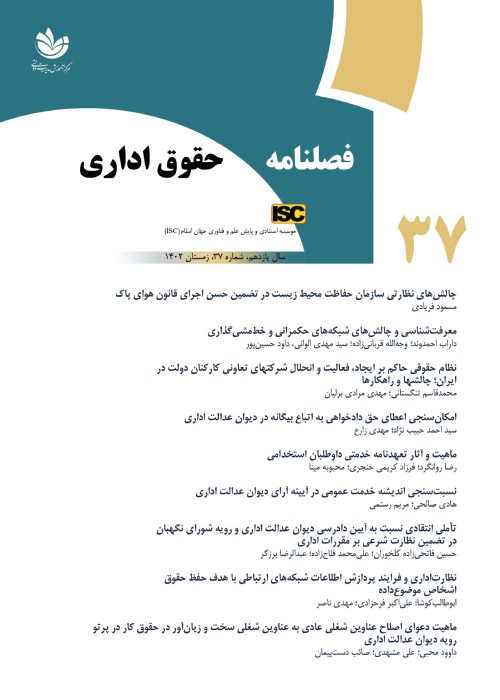The Criteria and General Conditions of Iran Petroleum Contracts (IPC) from the viewpoint of the constitution of the Islamic Republic of Iran
The new generation of Iranian oil contracts (IPC) in 2015, after its general terms were approved by the government, was unveiled, introduced and reviewed in two stages. Developers of the general terms of IPC, citing that current patterns of service contracts, including the third generation of Buy Back Service Contracts, do not meet the current needs of the petroleum industry and are not conducive to attract investors. The developers announced the most important goals for IPC: The need for a long-term presence contractor or investor in production phase of the fields, thereby guaranteeing the quality and quantity of the contractorchr('39')s activities, The need to establish a direct relationship between the contractorchr('39')s wage and the amount of oil or gas produced and, consequently, the realization of a sentimental perception, The prediction of technology transfer during the production phase and the direct linkage between the type of technology used and the contractorchr('39')s wage due to the impact on the maximization and most efficient harvesting of fields and the realization of the win-win strategy. The new contractual model faces ambiguities and disadvantages, for example: Conflict of this pattern with the governmentchr('39')s sovereignty over oil and gas resources, The danger of alien domination over the countrychr('39')s oil interests due to long-term and other predicted conditions in public terms, The erosion of public ownership of oil and gas fields, The similarity of some of the provisions of the new model with the score and therefore its prohibition, Prohibition of the transfer of public ownership of oil and gas fields to the private sector and uncertainty about the transfer of technology to the long-term presence of a foreign contractor during production phase. These criticisms of the opponents of this contractual model are interpreted as contradictory to the constitutional principles. In this paper, we will try to identify, by specifying the relevant laws and examination of the criticisms, that none of the above items is in conflict with the principles and provisions of the constitution. And Most of the suggestions or objections raised are from the perspective of managerial interests and provide maximum benefits in terms of management and executive management. The results of the study indicate that the new contractual model (IPC) do not conflict with the fundamental principles of the constitution of the Islamic Republic of Iran
- حق عضویت دریافتی صرف حمایت از نشریات عضو و نگهداری، تکمیل و توسعه مگیران میشود.
- پرداخت حق اشتراک و دانلود مقالات اجازه بازنشر آن در سایر رسانههای چاپی و دیجیتال را به کاربر نمیدهد.


